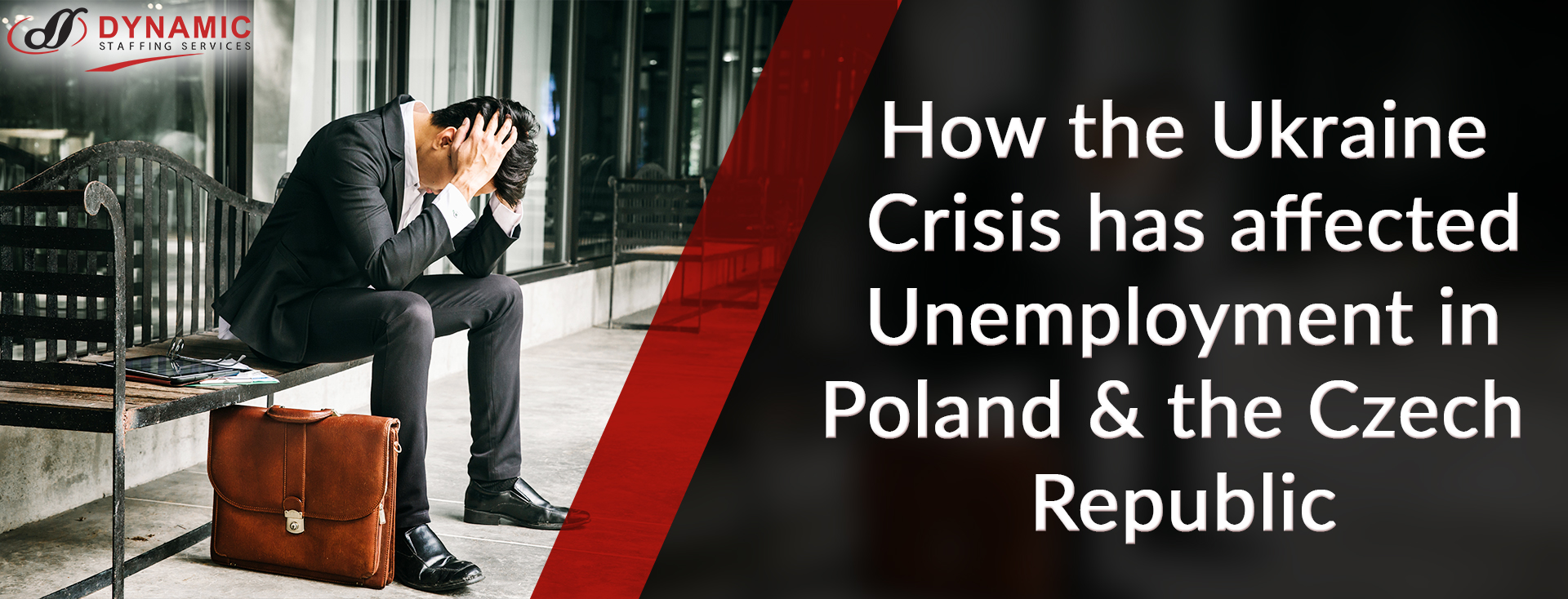Construction sites, factories, and warehouses all over Central Europe scrambled to fill openings after tens of thousands of Ukrainian men left their blue-collar jobs to return home after the Russian invasion.
Ukrainian workers had poured into Central Europe over the previous ten years, attracted by higher pay and made easier by easing visa rules. They filled occupations in heavy industry, automobiles, and construction that didn’t pay well enough for locals.
Many workers have returned home since Russia invaded on February 24 to help with the war effort. Causing a sudden worsening of labour shortages in several of Europe’s most industrialised economies.
According to 14 business executives, recruiters, business associations, and economists contacted by Reuters in Poland and the Czech Republic, Ukrainian labour drives up costs and causes delays in industrial orders and building projects.
Ukrainians made up the largest contingent of foreign labourers in Central Europe before the Russian invasion. Business organisations say Poland and the Czech Republic have more than 200,000 and 600,000 Ukrainian workers, respectively.
According to Employers of Poland, a trade organisation representing 19,000 businesses, around 150,000 Ukrainians have left Poland.
According to Wieslaw Nowak, Managing Director of Polish streetcar and railroad company ZUE Group, one of the subcontractors failed to finish work connected to laying tracks. This is because nearly all of the 30 Ukrainian workers have left.
“Many firms are looking for staff members in large numbers at various construction sites,” he told Reuters, citing significant withdrawals.
“It undoubtedly affects the cost and pace of work because rebuilding a team takes much longer than a matter of a few days if someone loses several dozen employees simultaneously.”
Nevertheless, in June, the European Central Bank forecast that Ukraine’s immigration would contribute to the eurozone’s labour shortage.
In contrast, the opposite occurs in Europe’s developed nations, which are not currency union members.
Ukrainian immigrants, primarily women, and children, have flooded the region, filling many open positions unsuited to their abilities. Female employees cannot lift more than a certain amount of weight in physically demanding positions such as manufacturing, construction, or foundries.
According to industry leaders interviewed by Reuters, there is a desperate need to find creative ways to fill workforce gaps. It includes training female migrants to drive forklift trucks and hiring skilled workers from Asia.
However, the unexpected workforce shortage poses a significant problem for many businesses still working to recover from the COVID pandemic’s economic effects. These businesses are also dealing with dramatic increases in energy prices and inflation due to the war.
According to Radek Spicar, vice president of the Czech Federation of Industry, “the loss of Ukrainian workers has deepened the problems companies are facing.” Companies claim they can’t meet all their partners’ demands, so they deliver late and incur penalties.
Vacancies
The Czech Republic is the most industrialised country in the EU, with industrial production accounting for 30% of GDP. Poland is not far behind at 25%.
More than a thousand Ukrainian job applicants were scheduled to come to the Czech Republic between March and June before the Russian invasion. These applicants were mostly for industrial, automotive, and logistics positions.
According to Gabriela Hrbackova, MD of Hofmann Personal in the Czech Republic, businesses expecting those workers are now having trouble filling those positions. With a 3.1% unemployment rate, the nation has the lowest EU unemployment rate.
It will have significant effects, especially for manufacturing enterprises, if this cannot be handled soon and the chances of hiring foreign candidates are not expanded, Hrbackova told Reuters.
“Companies lack hundreds of employees for production operator positions, qualified manufacturing positions such as welders, (machine) operators, metal workers, and forklift drivers.”
The rapid exodus of people from the Polish labour market, where Scanfil operates, strengthened intentions to increase automation. Scanfil is a Finnish firm specialising in electronics manufacturing, assembly, and production outsourcing.
“Automation is possible in some positions, but not everywhere,” said Magdalena Szweda, recruitment manager at Scanfil Poland in Myslowice. “It doesn’t solve the problem because human hands are still needed in many workplaces.”
Economic effects
Based on economic statistics and discussions with local firms, Michal Dybula, chief economist at BNP Paribas Bank Polska, stated that it was obvious that the loss of Ukrainian workers would hurt the Polish economy, which is the sixth-largest in the European Union, at least in the short term. He added that estimating the impact scope was still too early.
According to Petr Skocek, Director of the Brose Group facility in Ostrava, a city in the Czech Republic close to the Polish border, the recent influx of Ukrainian workers has benefited businesses because of their skills, work ethic, and shared culture.
He announced, “This channel has now stopped.”
The workforce crisis exacerbates the factory’s supply chain with the rising cost of energy and materials due to the war and lingering disruptions from the pandemic.
The producer price index, a gauge of industry inflation, reached approximately 25.6% in Poland and 28.5% in the Czech Republic in June.
Some businesses are increasing their salary offers to entice replacement employees, woo local workers, and fend off rival businesses in the scarce Ukrainian workforce.
The chief executive of Polish-based producer InBet, which creates prefabricated building materials, Maciej Jeczmyk, stated that the company was looking for Ukrainian workers on the market and was offering higher wages. “We adjust nearly every week.”
Drafting females
Ukrainian immigrant women were hired to replace men by their client enterprises to deal with shortages, according to Polish recruiting firm Gremi Personal.
The company’s deputy director, Damian Guzman, told Reuters: “So, for example, a man might transfer from the manufacturing line to the logistics department wherever they have to carry heavy things that have a legal limit for women.”
Companies have also been forced to reconsider their processes and expand their search to nations like Mongolia and the Philippines. This is where it is more challenging to fill positions swiftly due to language, travel, and visa constraints.
The issue, according to Marcos Segador Arrebola, CEO of recruiter GI Group Poland, is that there aren’t enough individuals from these other nations to fill open positions.
He claimed that over the previous 13 years, Ukrainian workers had surged 38-fold in developing Europe.
Businesses like the Polish construction firm Inpro can complete projects on time. Others are extending workdays and preparing women for jobs historically filled by men, including operating forklifts.
The CEO of recruiting company Trenkwalder Poland, Wojciech Ratajczyk, stated that the company had available positions for 50,000 logistics workers, most of whom were forklift drivers.
He said more than 600 women responded to an advertisement regarding forklift training sent to 2,000 refugees. Several dozen people recently began a 4-week course planned in cooperation with businesses.
Subscribe to our newsletter to stay updated on employment updates from across the world. You can reach us by phone at +44-7477196844 or by email at enquiry@dss-hr.co.uk if you have any query.





